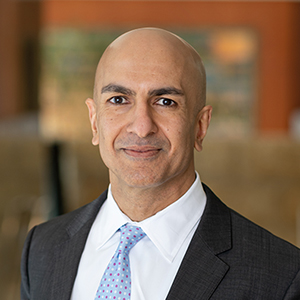
Photo taken at the Children First Community Conversation at the Minneapolis Fed on January 13, 2020
This commentary was first published in the Star Tribune.
George Floyd’s killing has awakened America to the need for fundamental police reform. Police brutality, in particular toward Black men, has been happening for decades. At its core, this police brutality is symptomatic of an abuse of police power and of a justice system that denies communities of color and Indigenous people equal justice under the law. Many people are finally learning about these abuses because of the shocking and undeniable images captured on camera. They are outraged by what they’ve seen and are joining those demanding change.
While it can’t be captured in a short, powerful video, our education system, in its own way, has been quietly, but persistently, denying equal educational opportunity and killing the futures of children of color, Indigenous children, and low-income White children for decades. Research by the Minneapolis Fed finds that only 37 percent of low-income Minnesota students of all races are proficient in math and reading compared with 68 percent of their higher-income peers. Only 30 percent of African American students perform at grade level, compared with 65 percent of White students. And, when it is time to enter college or the workforce, large disparities remain. Only 25 percent of African American students are college-ready compared with 69 percent of their White peers.
Is it hyperbolic to make a comparison between the abuse of police power and an education system that is failing so many Minnesota students? No, it is not.
Minnesota has some of the largest disparities in the country—in incomes, job opportunities, housing, and health care—with enormous variations from neighborhood to neighborhood. The research is clear: Education is at the root of all of these disparities. It is well-documented that people who have more and higher-quality education have more job opportunities, higher incomes, and better housing options and health care outcomes. They are also far less likely to enter the criminal justice system.
A quality education is without question the most powerful tool we have to break the cycle of poverty and create a society in which everyone can fully participate. It doesn’t just change one child’s life. It has the potential to improve the future for generations to come and leads to a more productive, vibrant society for all of us.
Earlier this year, as a vehicle for eliminating educational disparities, we proposed amending Minnesota’s constitution to give every child a civil right to a quality public education. Many parents were surprised our constitution doesn’t already guarantee all children that right. In fact, today our constitution simply says children have the right to access an adequate education system. What is an adequate education system? It is a system that works well for children from well-to-do families and fails children from low-income families, both in the Twin Cities and in greater Minnesota. Tough luck if your child is at the bottom of that system. While education should be the great equalizer, the Minnesota education system perpetuates the status quo.
Our current constitutional education provision was written in 1857, while slavery was legal in much of America. The language hasn’t changed since then.
An education system that leaves behind large groups of its citizens with little chance for upward mobility is a crisis—one that demands fundamental transformation. Numerous targeted education reforms of the past have failed to make any difference in outcomes for Minnesota’s children. Updating our constitution can transform our education system over time to one that promotes justice and meets the needs of all Minnesotans and our modern economy.
Most important issues the Legislature considers are partisan, and it can be difficult to reach agreement on anything other than incremental changes. The good news is that amending the constitution to create a civil right to a quality public education isn’t partisan. While we had to pause our pursuit of the amendment because of the COVID-19 crisis, we had generated strong bipartisan support in the Legislature, uniting members of the DFL People of Color and Indigenous Caucus with conservative Republicans from greater Minnesota. We know that leaders are focused on the important work of police reform and continuing to address the COVID-19 crisis. Looking ahead, we are committed to moving this amendment forward, and we encourage our elected leaders and the people of Minnesota to put education at the forefront of their agendas. The world is watching Minnesota because of our failings. This is an opportunity to show the world that Minnesotans can unite to lift all of our children.
Neel Kashkari is president of the Federal Reserve Bank of Minneapolis. Alan Page is a retired Minnesota Supreme Court justice and a founder of the Page Education Foundation.






